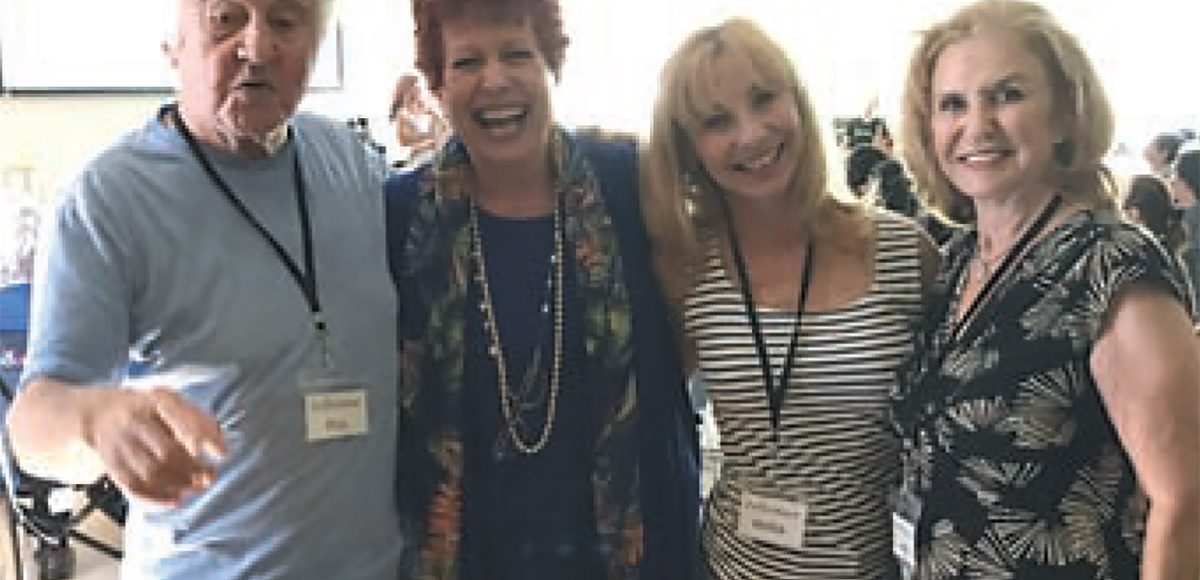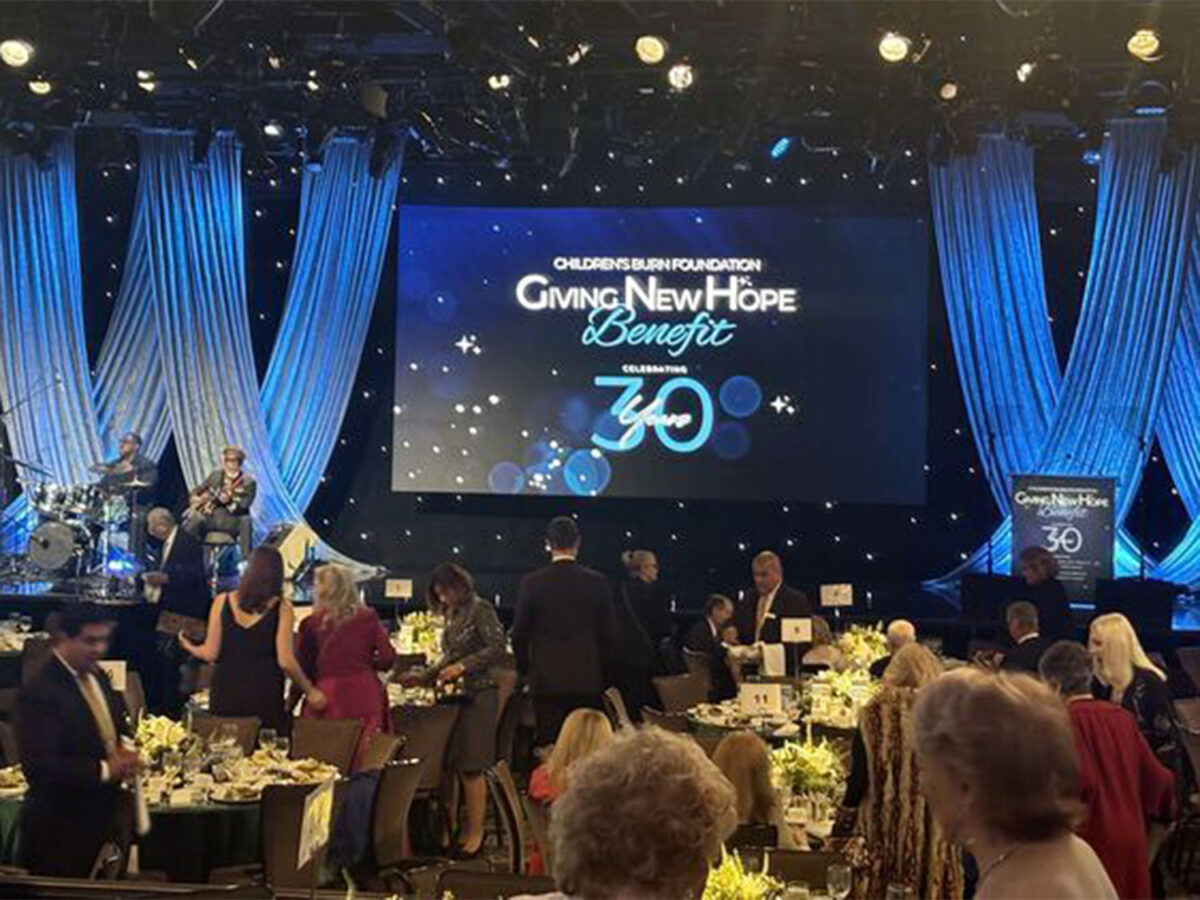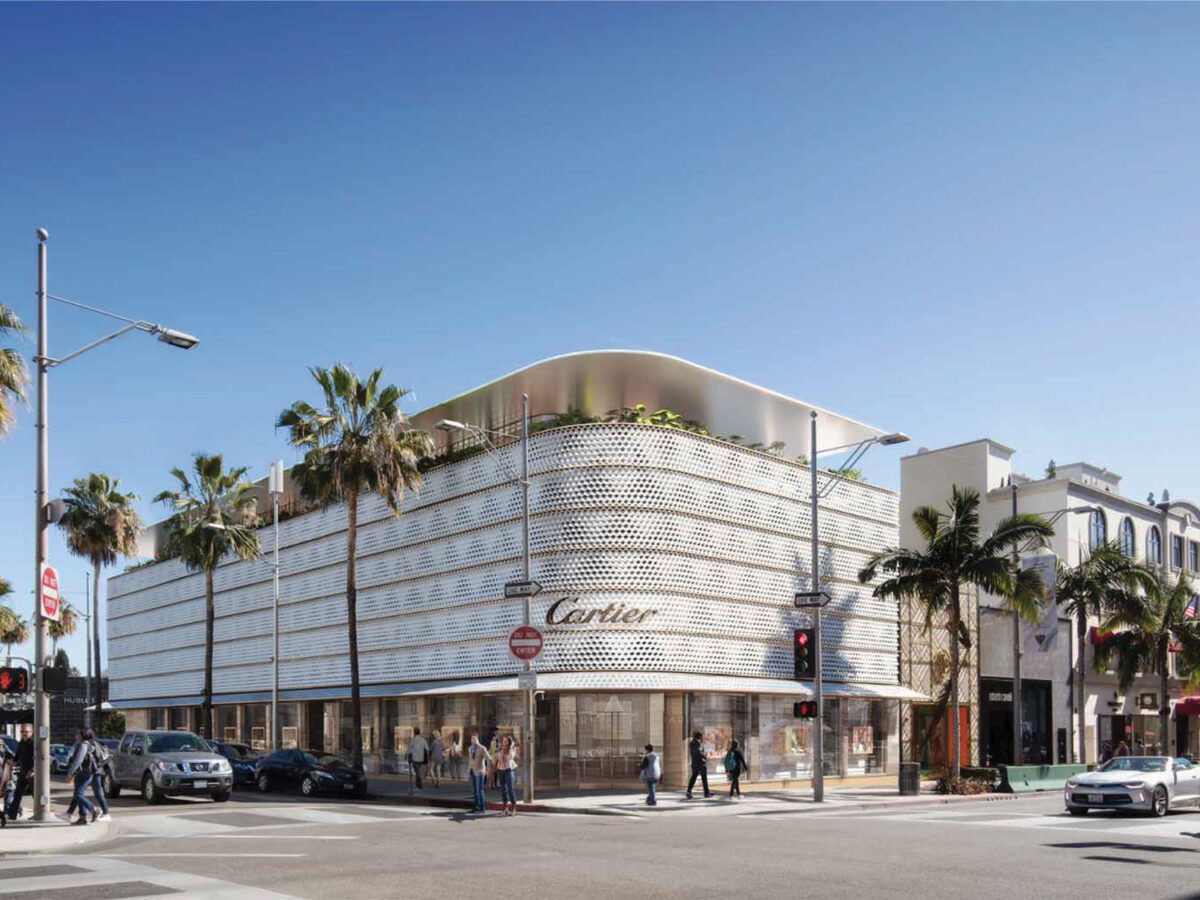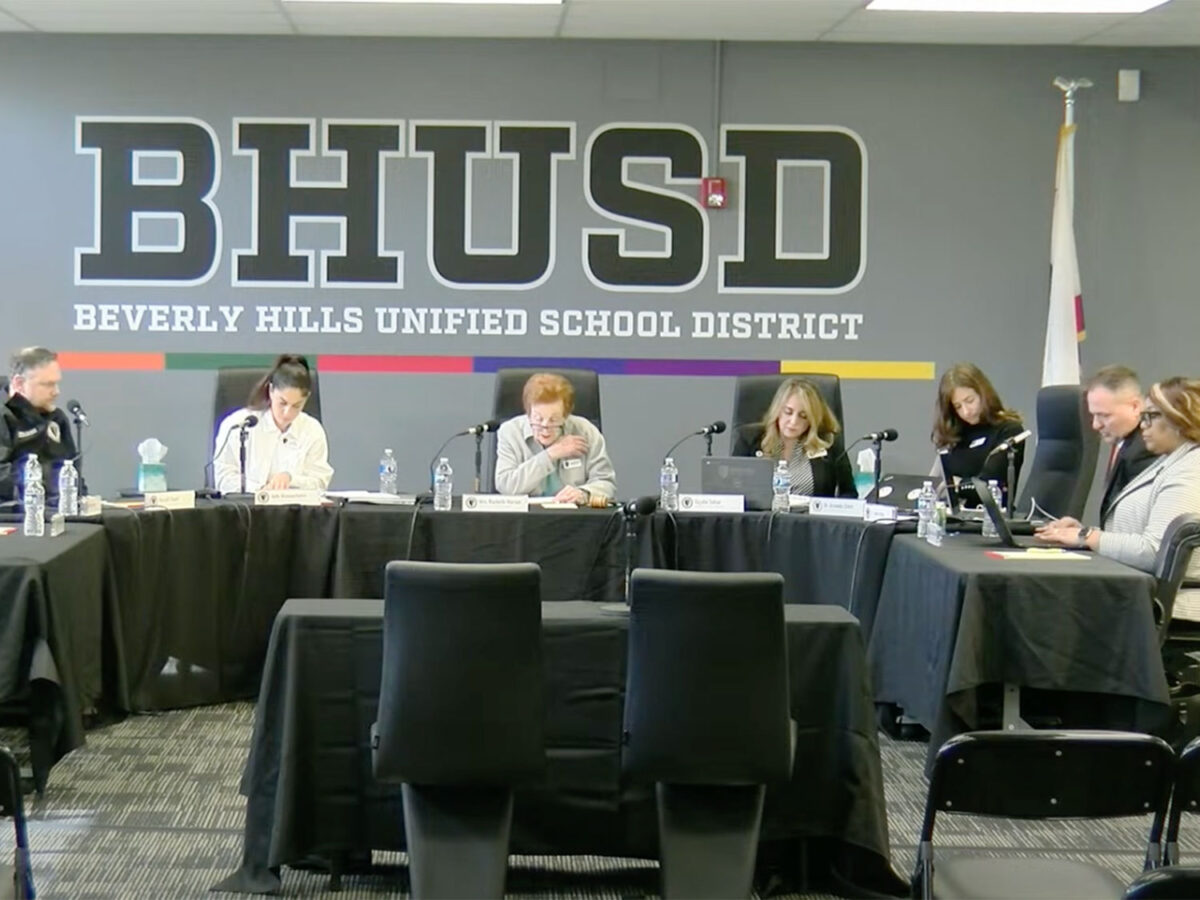With age comes the ever-growing risk that you or someone you love will develop a neurodegenerative disease such as Parkinson’s or Alzheimer’s diseases that strip away one’s dignity.
On Tuesdays at Roxbury Park, the “Beverly Hills Treble Makers” perform from 1:30-3 p.m. as an offshoot of Music Mends Minds. Only smiles abound on the faces of those suffering from cognitive decline, any thoughts of impairment driven away by the power of music. Maracas shaking, drumsticks beating against each other, hands pounding on bongos or the arms of caregivers, ebullient singing, the swaying of bodies in seats, wheelchairs or walkers, even dancing at times such are the hallmarks of the Tuesday afternoon performances of the Beverly Hills Treble Makers.
“It’s so powerful and therapeutic and it’s a perfect match for Beverly Hills,” explained Myra Lurie, the Beverly Hills Rotarian who helped launch the program in February 2018 during her time as president of the Rotary Club of Beverly Hills, in conjunction with fellow Rotarian Steven Weinglass. “It’s just everything we wanted it to be and more.”
A collaboration between the City of Beverly Hills and the Rotary Club of Beverly Hills, the local Music Mends Minds programs is one of two dozen that have now launched globally. Started by Carol Rosenstein five years ago in Brentwood after observing firsthand the transformative power of music on her husband Irwin, who suffers from Parkinson’s and dementia, Music Mends Minds is all about healing. Roughly 70 people attend the weekly program in Beverly Hills, three of whom are over 100 according to Lurie.
Carol recalled the moment everything clicked for her in 2014 her husband had been having a particularly rough period and was not responding well to medication when he suddenly began playing the piano one day and sprang to life, becoming more energetic and aware. Irwin had spent his life playing the saxophone and the piano, but Carol said she was shocked at how resurrected her husband became once he began playing the piano keys while in the throes of the debilitating effects of his disease.
“I could see when he was playing the piano he would reconnect,” she described. “In the moment of music, he’s whole and healthy.”
Shortly after that revelation, Carol made a series of phone calls and soon had 30 people over to “launch” some type of musical therapeutic group. Within 10 minutes, four people in the group were performing, one on the sax, one on a drum kit, another on a harmonica, and her husband on the Steinway. It was the birth of the “5th Dementia,” which now meets twice a week at the Brentwood Presbyterian Church on Mondays and Wednesdays from 1:30- 3 p.m.
“People walk out of here changed,” Carol said, adding that several Music Mends Minds participants have actually been able to lower their dosage of antidepressant medication as a direct result of being a part of the therapeutic music group. In fact, studies increasingly support how music can enhance cognitive functioning and neural processing and that it can actually ease discomfort and improve mood.
The 501(c)(3) non-profit Carol subsequently founded creates musical support group bands for patients with neurodegenerative diseases as well as traumatic brain injury, stroke and PTSD. In addition to various support efforts, Music Mends Minds has a list of recommended songs they distribute globally every week, but the band leader really decides what the group will perform.
In Beverly Hills, those decisions come down to Weinglass, who has a lifetime of experience as a professional musician. While the Beverly Hills Treble Makers perform roughly 20 songs on any given Tuesday the lyrics to which are projected on one wall in large text to make the experience a sing-along Weinglass said he has arranged a catalogue of around 100 upbeat songs for the group, most of which are 1950’s rock n’ roll.
“I want to get people who are suffering from these things to show their musical attentiveness when they’re there,” he explained to the Courier in between sets at the piano. “I want them to sing, but I want them to also feel the energy of having everyone singing with them. I keep it upbeat and lively with solid beats.”
Indeed, it’s hard to spot anyone who’s not clapping along or tapping their leg or an instrument in rhythm to the music, which includes songs like “Pennies from Heaven,” “All of Me,” and “Fly Me to the Moon.” Weinglass says that the element of inclusiveness is key to keeping attendees engaged, and one of the reasons it’s been so successful and truly, the positive energy in the room is infectious.
For Aimee and Bill Young, the impact of Music Mends Minds in their lives is palpable.
“When he comes here, he just turns into a different person,” said Aimee Young, whose husband Bill transforms from his normally subdued self into a passionate singer with a voice like Sinatra when he attends Music Mends Minds in both Beverly Hills and Westwood.
“This band (BH Treble Makers) and the other band (The 5th Dementia) has just been a remarkable transformation for him.”
Everyone is welcome, although those under age 18 and those who require a caregiver must be accompanied to the weekly free event in Beverly Hills.
“I invite people to dream,” said Carol Rosenstein of the Music Mends Minds bands. “Just like a plant that is dry and withered, give it water; give it music and it will bounce back. This is high-powered medication where the only side effect is happiness. It’s just pure joy.”
An upcoming benefit concert on Saturday, Oct. 12 in Cheviot Hills for Music Mends Minds will feature Millicent Gappell on the piano and bass-baritone opera singer Michael Dean. For more information, contact info@musicmendsminds.org.







